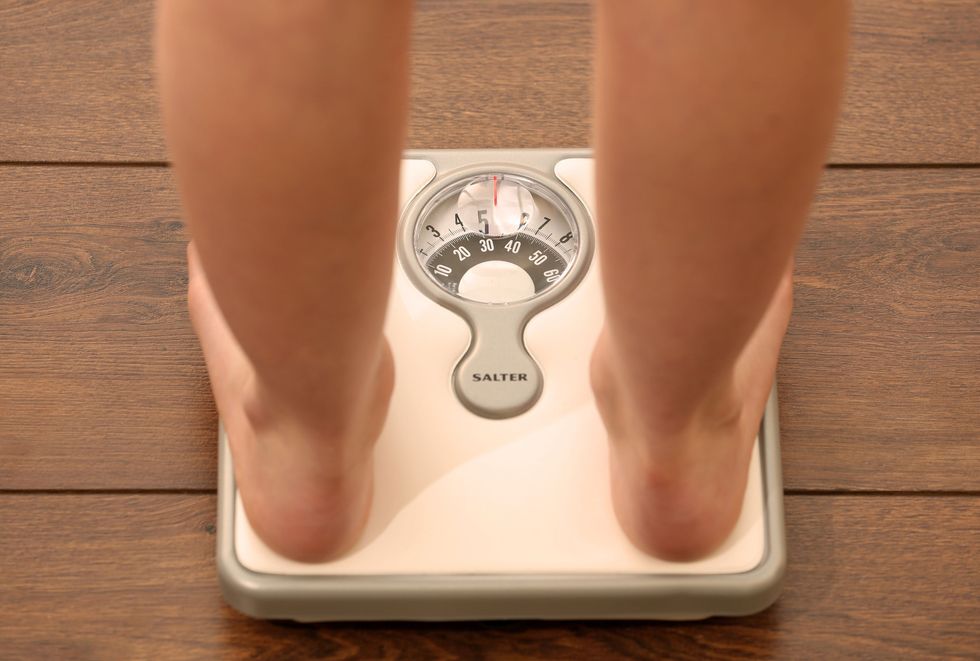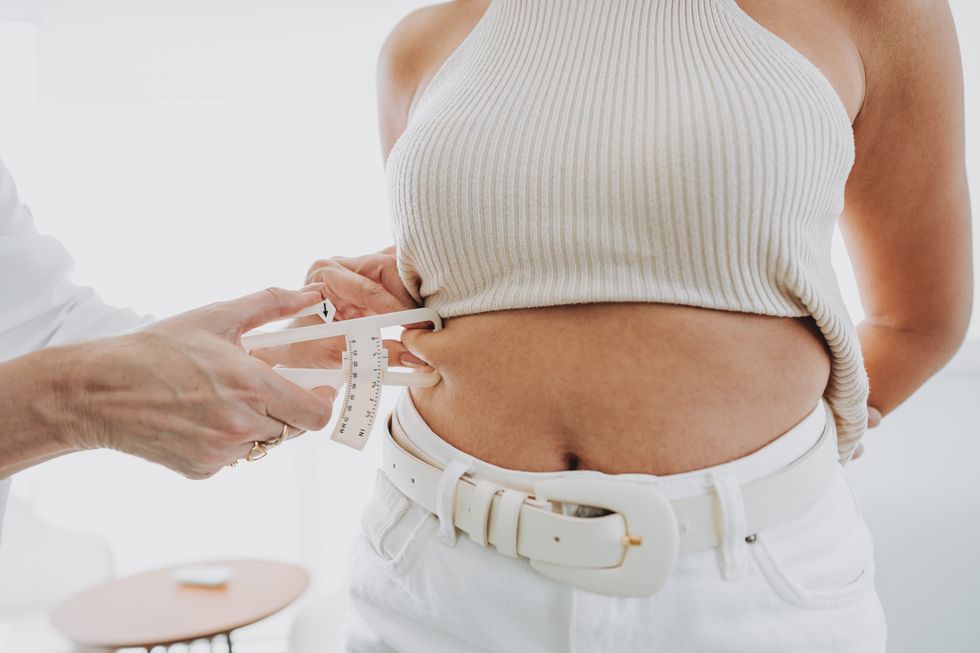An expert has shared key dietary changes women in their fifties can make to feel their best
Don't Miss
Most Read
Trending on GB News
Menopause marks a phase in a woman’s life where her ovaries run out of eggs and her period ceases.
These changes are driven by a hormonal decline which spurs several physical changes, including weight gain around the abdominal region as opposed to the hips and thighs.
Intuitively, some women respond to these weight changes by cutting out food groups in their entirety, but this approach may be counterproductive.
Evidence suggests that a lack of protein as we age could contribute to weight gain during menopause, as the body’s need for protein naturally increases at this time.

Weight gain typically occurs around the body's mid-section during menopause
PA
What’s more, a dysregulation of hormones often leads to increased hunger - which is only exacerbated when protein is excluded from the diet.
The food group is essential for helping keep the body full and satisfied while helping increase metabolic rate.
Cutting out protein also significantly increases the risk of losing muscle mass, which is essential for prolonging healthspan as we age.
“The secret to avoiding weight gain during and after menopause is upping your protein,” registered Dietitian and Provytl co-founder Zoe Cottrell told GB News.
“Low protein intake is linked to frailty in both men and women of fifty, but women going through menopause experience a double whammy.”
During this transition period, females already have to contend with a decline in muscle mass loss as the body's ability to synthesise protein becomes impaired. On the other hand, they also have to deal with a drop in oestrogen.
“This drop in oestrogen is linked to a range of menopausal symptoms, including a decline in muscle mass and bone strength along with weight gain and weight redistribution,” explained Cottrell.
“Incorporating extra sources of protein into your diet may help relieve some menopause symptoms, and when coupled with resistant training exercise, it will definitely help retain strength and muscle mass.”
Cottrell added: “I always recommend incorporating protein into your diet through food first. But there are times when people struggle to reach their recommended amount.
“Especially when appetite is low… In these cases, a protein powder can help.”
LATEST DEVELOPMENT:

Women can avoid weight gain by upping their protein intake
GETTY
It comes as the dietician recently told GB why muscle mass is the most important buffer against signs of ageing.
“The single most important factor associated with slow ageing is ensuring you maintain muscle mass,” the expert said.
“Retaining muscle is how we all remain active and able to do the things we love.
“Whether it’s a park run walking the dog, playing tennis or keeping up with the grandchildren, staying strong and healthy as you age is vital.”









